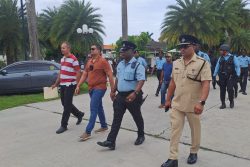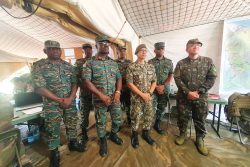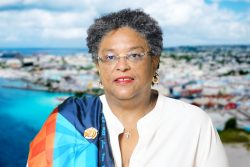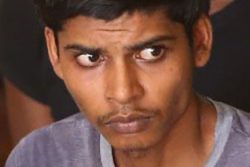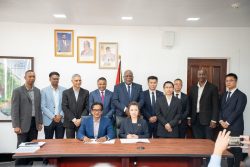Dear Editor,
I note with interest what I believe may be the first ‘national conversation’ on race, which is covered under the caption, `Ethnic Relations Commission forum: Hughes advocates data gathering on impact of gov’t policies on each race’ (SN December 15). What follows should in no way be construed as a criticism of the learned man’s advocacy. I merely take it elsewhere, add something, hope for more of the same from others.
Mr. Hughes is reported to have spoken about “huge arguments” and “assumptions” hurled and “perceptions” and “arguing assumptions.” Mr. Hughes is right. But he is also going about this in the wrong way. Arguments and assumptions are fine products of his finer legal mind, refined by decades of training and experience. But there is so much more to that and of what is involved than what Mr. Hughes went to lengths to enlighten us. Like I said, he is on the right track, but journeying on the wrong train. I agree wholeheartedly that perceptions and assumptions have twisted us into knots. But from my humble untutored (perhaps, un-Guyanese) perspective, race relations in this society proceed on much more than perceptions and assumptions.
For the sharp underpinnings of those are powered by emotions and passions, which are mathematically and scientifically elusive to quantity and qualify. I think that as much as numbers and expert interpretations and conclusions would be infinitely helpful (and needed), we at the individual level are the best mathematicians and scientists and experts on how and where we are and what to do about our racial mysteries. The first mystery is that they are not mysteries at all, because we are so emotionally volatile, and political gullible, on matters of race we reflexively fallback on the race solution for our up-to-now insoluble race equations. That much is obvious, beyond denial; though, we hide from our responsibilities to such a truth. We make up our own self-serving comforting truths. In sum: we lie and falsify to our heart’s content and the perpetuation of our anguish. But we use leaders as scapegoats; they, in turn, made a nice living blaming the men across the divide.
The accepted, but unadmitted, reality is that political parties-earlier blatant race groups, now more careful entities (still racist to the core)-meaning governments have cultivated some of the stormy race relations within us, and capitalized powerfully on the bitter fruits. For our part on the individual plane-at the beginning and during the middle, we were content to belong and liked contributing to the disfigurements that now run amok across our fixed countenances. To a great extent, we have loved who we are in this regard; and how it has rewarded when our turn came. And because of this, I fear distortions to our mathematical and scientific models and endeavours, as honest as they may be intended. As citizens, we have learned well from now cautious political leaders, where no word is out of place; where political correctness negates the degree of openness and bluntness that we need to get to the bottom of who we are and why we like being how and where we are. In many respects, how we are in terms of race relations is no longer even exclusively and primarily about the political or the racial. It is spiritual.
And that is precisely what I have sat before, listened to, observed about, and concluded relative to our supposed impregnable bastions. Those would be our sanctuaries of worship, where frankness, fearlessness, and truthfulness should all be nonnegotiable. Instead, the earthly, the secular, the political, and the racial saturates and conquers the sacred spaces of the divine and heavenly. Believers are so overwhelmed by allegiances to princes and parties, that they cannot speak to truth, they will not allow the kind of examination that could lead somewhere. They hedge around and defend flagrant wrongdoings; they erect semantic barricades to protect racial and political comrades and, in the process, extend the circle of the racial wantonness that yoke us and condemn us. These are not mathematically definable.
As I see it, to get somewhere, the following handful of harsh questions and self-analyses are vital: Who am I in this ongoing Guyanese Gothic horror? What role am I living (or performing)? What do I want to do about where we are? Where I am? What difference do I want to make by speaking to truth, embodying truth and projecting truth? About me? How different do I want to be? In the living and practicing beyond the words and postures and ringing combinations that we find so temporarily endearing? Because I (me) am you and vice versa. We have to stop pussyfooting and sheltering, dissembling and reciprocally devastating each other continuously with half-truths and hypocrisies, omissions and overtures that tantalize, but lead to the same place that none of us truly desire to face.
This is what I offer to Mr. Hughes and company. This is what I bring before the ERC and its well-meaning start -don’t sputter. That is where I am before all Guyana. If I have offended anyone, I don’t give a damn.
Yours faithfully,
GHK Lall



